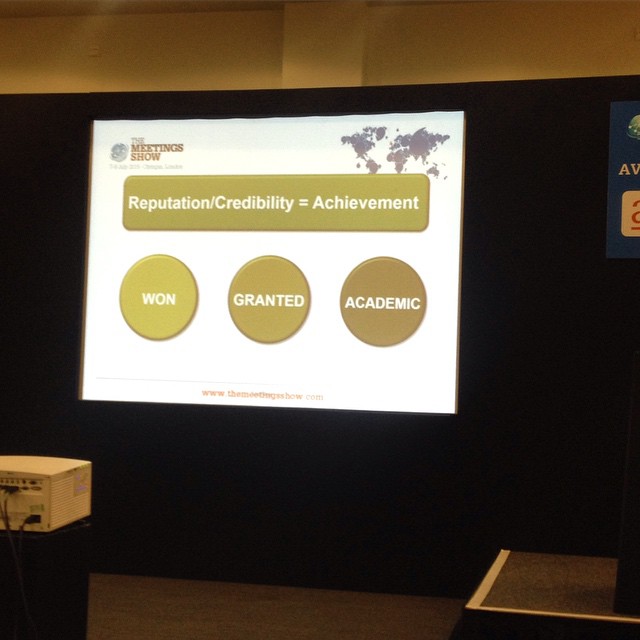Awards season is fast approaching. In the following moths some of the major industry awards (at least in the UK) will take place: Meeting Industry Marketing Awards, C & IT Awards, London Venue Awards, Event Tech Awards, to mention a few.
Back in July at The Meetings Show I attended a session by Patrick Delaney, Managing Partner at SoolNua and Steen Møller, Head of Business Events at Visit Denmark about “How Winning Awards can Impact Your Business” and in this post want to share with you major takeaways.
If you participated in awards yourself, you know how demanding it can be preparing your entry and the stress and excitement about it, not to mention financial investment. But how do you decide which awards to apply for and does it really impact your business?
I participated in awards myself, some included very detailed submission with references and presentations, others required just few short paragraphs. Looking back it was a rewarding experience and some brought to career advancement. But applying for the award was more of a spontaneous decision “let’s try it, I have nothing to lose” so I was curious to know if there is more to it and how to leverage such awards.
The importance of reputation
We know already that in the events industry is all about reputation and who do you know (or who knows you). Reputation can be gained through awards and there are three types of awards: won, granted and academic.
While it can be positive or negative, positive reputation can help you increase your credibility and in turn can contribute to your business success.
Benefits of applying for awards
The speakers suggested that awards are about measurements and focusing on your own work. If you are to invest time and effort in the application process you need to know what your ROI is and what you are measuring – more business, become a key opinion leader etc.
Key points to keep in mind:
- Clients love to be associated with the awards and involving them and projects you did for them is good way to bring them on board
- Awards can help you develop your brand, aligning with brands who applied for the award and won in the past
- Benefits don’t become immediately obvious
- Leverage awards for building relationships with your team and recognise them. The prize is not the most important motivation.
Reputation alone doesn’t build trust and an Award is a tool for building trust. For example the BeeSustain campaign by Copenhagen CVB cost less than £2,000 and generated great buzz on social media and contributed to positioning Copenhagen as a sustainable destination.
Building reputation
There are over 100 industry awards, so who decides which ones are credible?
Because you apply for awards to build credibility, the speakers advised to “find the audience you want to win the awards towards” and that “winning awards that are important for the target audience can also serve as a marketing tool”.
But…
What kind of information is available out there to build your reputation? Different groups of people think different things about you and how well do you know what your reputation is?
So..
- Know your target audience.
- Know your value proposition.
- Choose your tools.
- Be consistent.
Here we had a discussion in the audience about how to build reputation and we came up with the following suggestions:
- Keep your integrity, such as people should be able to rely on you and you keeping your word.
- Consistency: you get reputation from the beginning and you need to keep it.
- Reliability: delivering results on time and doing what you promised to to.
- Thought leadership: can be gained through speaking at conferences and can be earned only.
Challenges
We know that the events industry is constantly evolving and new trends and awards are created, so how to keep the temptation of jumping on the latest trends?
Steen suggested it is “good to test new trends but underpin everything you do under strategic decisions”.
Great advice was given at the session and lots of points to consider for the future!





No Comments